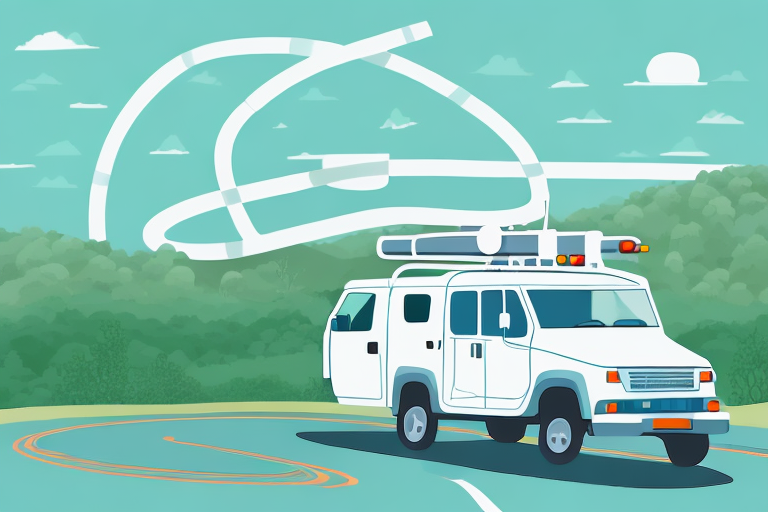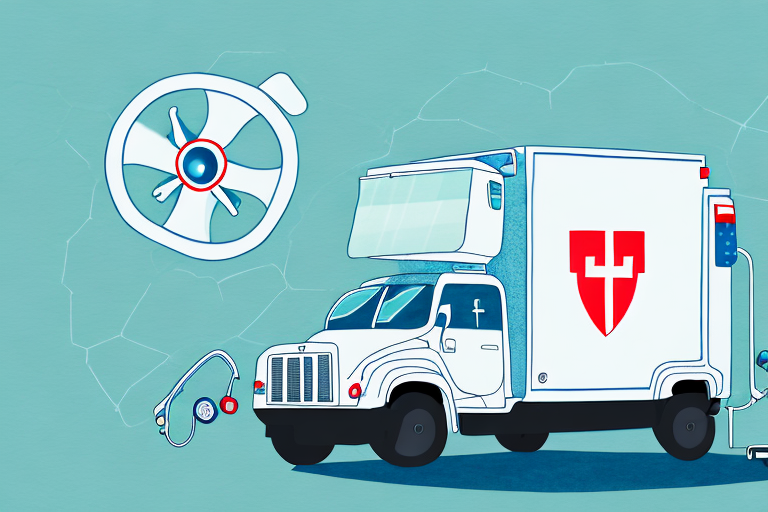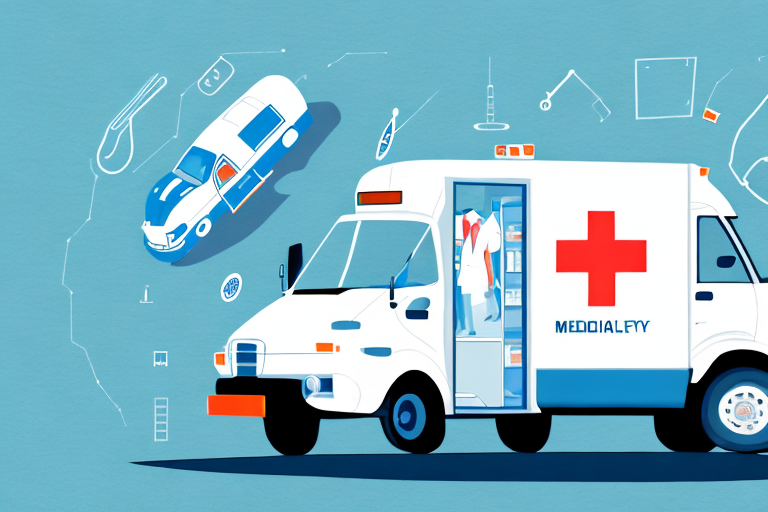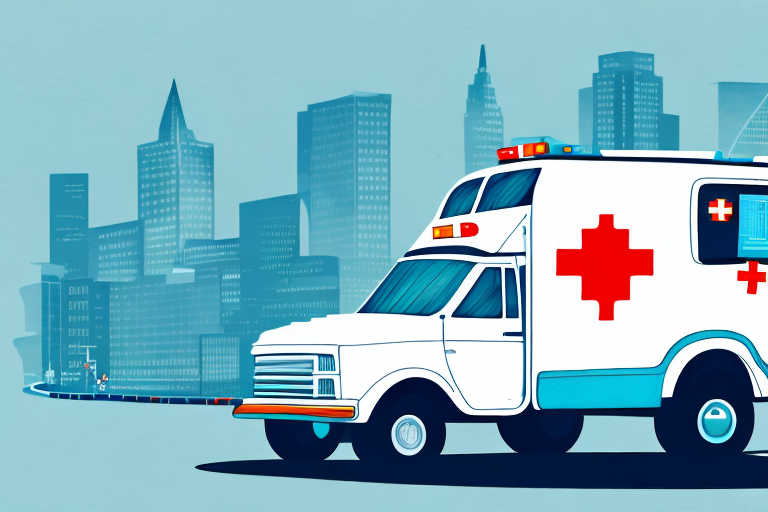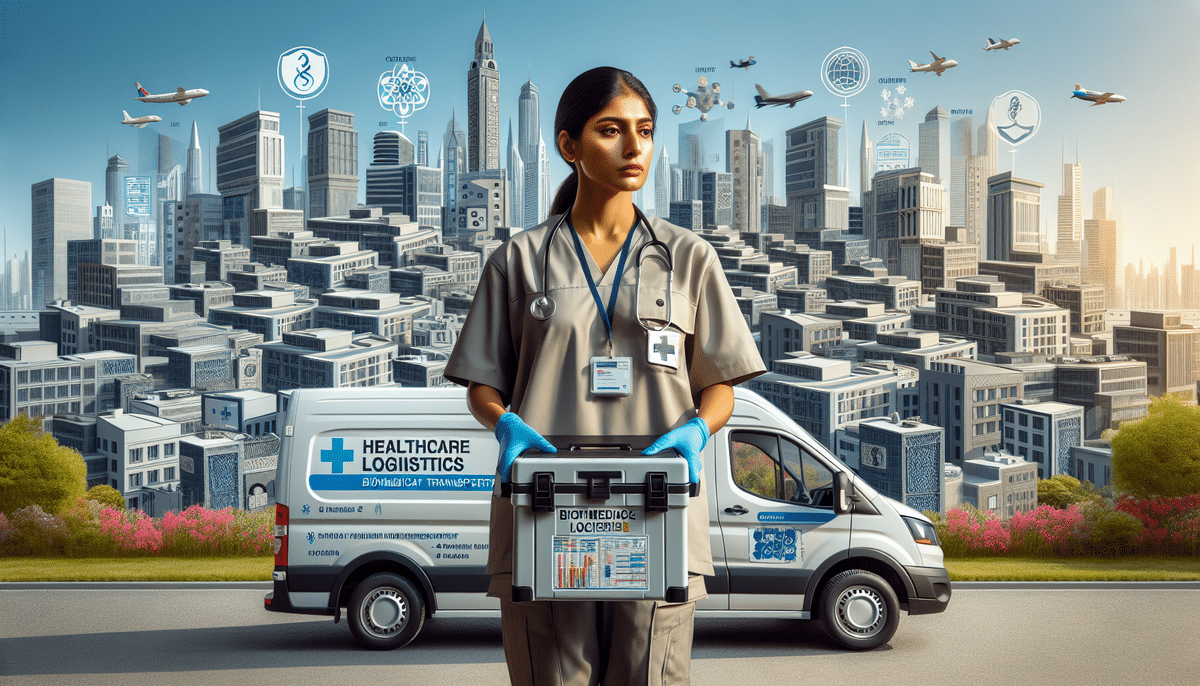If you are interested in pursuing a career in healthcare but prefer a non-medical role, then a medical driver job might be the right fit for you. Medical driver jobs are in high demand due to the increasing need for transporting patients and medical supplies to various locations. In this article, we will explore the benefits of pursuing a career in medical driving.
The Growing Demand for Medical Driver Jobs
The healthcare industry is constantly growing to meet the healthcare needs of an aging population. With this growth, the need for medical drivers has also increased. Medical drivers transport patients and medical supplies to various locations, such as hospitals, clinics, and care homes. As medical facilities expand their services, the demand for medical drivers continues to rise, making it a stable career choice.
In addition, the COVID-19 pandemic has also highlighted the importance of medical drivers in the healthcare industry. With the increased need for medical supplies and equipment, medical drivers have played a crucial role in ensuring that these items are delivered to the right locations in a timely manner. As a result, the demand for medical drivers has surged even further, making it a promising career option for those interested in the healthcare field.
What Do Medical Driver Jobs Entail?
Medical driver jobs involve more than just driving patients to and from medical appointments. Drivers may also be responsible for loading and unloading medical equipment, ensuring the safety and comfort of patients during transportation, and communicating with medical staff regarding patient needs. Being a medical driver requires attention to detail and excellent communication skills, as well as compassion and empathy for patients.
In addition to these responsibilities, medical drivers may also need to have knowledge of basic medical procedures and equipment. This is especially important in emergency situations where the driver may need to assist medical staff in providing care to the patient. Medical drivers may also need to be familiar with different types of medical conditions and disabilities, as they may need to provide specialized care during transportation.Furthermore, medical drivers may need to have a flexible schedule, as medical appointments can occur at any time of the day or night. They may also need to be able to navigate through traffic and unfamiliar areas, while ensuring the safety of their passengers. Overall, medical driver jobs require a unique set of skills and qualities, and can be a rewarding career for those who are passionate about helping others.
The Importance of Medical Drivers in Healthcare
Medical drivers play a crucial role in the healthcare industry. They are responsible for ensuring that patients arrive at their appointments safely and on time, which can be critical for those receiving time-sensitive medical treatments. Additionally, medical drivers are responsible for transporting medical supplies and equipment on time, such as blood samples, laboratory specimens, and medications. Without medical drivers, the healthcare system would not be able to function efficiently.
Furthermore, medical drivers are often trained to provide basic medical assistance during transportation, such as administering first aid or monitoring vital signs. This can be especially important for patients who require specialized care during transportation, such as those with chronic illnesses or disabilities. Medical drivers also play a key role in maintaining patient confidentiality and privacy, as they are responsible for ensuring that medical information is kept secure during transportation. Overall, medical drivers are an essential part of the healthcare team, providing critical support to patients and healthcare providers alike.
Advantages of Pursuing a Career in Medical Driving
One of the main advantages of pursuing a career in medical driving is job stability. As mentioned earlier, the demand for medical drivers continues to rise, providing a stable source of employment. Additionally, medical drivers may have flexible schedules, allowing for a better work-life balance. Medical driving careers also offer the opportunity to work with a variety of patients and healthcare professionals, making it a rewarding career.
Another advantage of pursuing a career in medical driving is the potential for career advancement. Medical drivers can gain experience and knowledge in the healthcare industry, which can lead to opportunities for promotion or advancement within the field. This can include positions such as medical transportation supervisor or manager.Furthermore, medical driving careers can provide a sense of fulfillment and purpose. By transporting patients to and from medical appointments, medical drivers are playing a crucial role in the healthcare system and helping to improve the lives of others. This can be a rewarding experience and can lead to a sense of pride in one's work. Overall, pursuing a career in medical driving can offer job stability, flexibility, career advancement, and a sense of fulfillment.
How to Become a Certified Medical Driver
To become a certified medical driver, one must first obtain a valid driver's license and a clean driving record. Many medical driving jobs also require a high school diploma or equivalent. Depending on the employer, additional certifications may be required, such as CPR and First Aid certification. Some medical driving positions may also require a commercial driver's license (CDL).
Once the basic requirements are met, aspiring medical drivers can enroll in a training program that specializes in medical transportation. These programs cover topics such as patient care, medical terminology, and safe driving practices. Some programs may also offer hands-on experience through internships or clinical rotations.
After completing the training program, individuals can take the certification exam to become a certified medical driver. This exam typically covers topics such as patient safety, emergency procedures, and transportation regulations. Once certified, medical drivers can work for hospitals, nursing homes, or private medical transportation companies.
Job Outlook and Salary Range for Medical Drivers
The job outlook for medical drivers is positive, with a projected growth rate of 13% over the next decade. The salary range for medical drivers varies depending on factors such as location, employer, and experience. According to the Bureau of Labor Statistics, the median annual wage for ambulance drivers and attendants is $30,830, with the highest 10% earning over $60,120 per year.
In addition to the salary range, medical drivers may also receive benefits such as health insurance, retirement plans, and paid time off. Some employers may also offer bonuses or incentives for drivers who consistently perform well or exceed expectations. It is important for medical drivers to research and compare different job opportunities to find the best compensation package for their skills and experience.
Top Employers Hiring for Medical Driver Positions
There are many employers hiring for medical driver positions, including hospitals, private medical transport companies, and government agencies. Some of the top employers in the medical transportation industry include American Medical Response (AMR), Acadian Ambulance Service, and Air Methods Corporation.
In addition to these companies, there are also opportunities to work for non-profit organizations that provide medical transportation services to low-income or underserved communities. These organizations include Angel Flight, Mercy Medical Angels, and Patient Airlift Services. Working for a non-profit can be a rewarding experience, as you are able to make a difference in the lives of those who may not have access to necessary medical care otherwise.
Essential Skills and Qualifications for Medical Drivers
To excel in a medical driving career, certain skills and qualifications are essential. These include excellent communication and customer service skills, attention to detail, and the ability to work in a fast-paced and high-pressure environment. Additionally, a clean driving record and a current medical certification may be required.
It is also important for medical drivers to have a strong understanding of medical terminology and procedures, as they may be required to transport patients to and from medical appointments or procedures. This knowledge can help them communicate effectively with medical professionals and ensure the safety and comfort of their passengers.Furthermore, medical drivers must be able to handle emergency situations calmly and efficiently. They should be trained in basic first aid and CPR, and have the ability to quickly assess and respond to medical emergencies that may arise during transport. This requires a level of physical and mental preparedness, as well as the ability to remain focused and composed under pressure.In summary, a successful medical driver must possess a combination of technical skills, medical knowledge, and personal qualities such as empathy and professionalism. By meeting these requirements, they can provide safe and reliable transportation for patients in need of medical care.
Tips for Excelling in Your Medical Driving Career
To excel in a medical driving career, it is important to remain focused on patient safety and comfort. Excellent communication with medical staff and patients is also essential. Other tips include staying organized, maintaining a clean vehicle, and keeping up-to-date records.
Additionally, it is important to have a thorough understanding of the medical conditions and needs of the patients you are transporting. This includes being aware of any necessary medical equipment or medications that may need to be transported with the patient. It is also important to have a basic understanding of medical terminology and procedures, as this can help facilitate communication with medical staff and ensure that patients receive the best possible care during transport. By staying informed and prepared, you can provide a high level of service and make a positive impact on the lives of those you transport.
How Technology is Transforming Medical Transportation
Technology is transforming the medical transportation industry. The development of mobile apps and software solutions is making it easier for medical drivers and healthcare providers to communicate and coordinate transportation services. GPS tracking systems and electronic health records are also improving the efficiency and accuracy of medical transportation.
Challenges Faced by Medical Drivers and How to Overcome Them
Medical drivers face various challenges, such as navigating heavy traffic, dealing with difficult patients, and ensuring patient safety. To overcome these challenges, it is essential to remain calm and maintain a professional demeanor. Good communication skills and empathy can also help to defuse difficult situations.
The Future of Medical Transportation and the Role of Drivers
As the healthcare industry continues to evolve, the role of medical drivers is also expected to change. With the development of new technologies and the growing need for more specialized medical services, medical drivers may need to adapt to new roles and responsibilities. However, the importance of medical drivers in providing reliable and safe transportation services will remain vital to the healthcare industry.
Case Studies: Real-Life Stories of Successful Medical Drivers
Real-life stories of successful medical drivers can provide valuable insights into the challenges and rewards of a medical driving career. These stories can also inspire and motivate aspiring medical drivers to pursue this fulfilling career.
Making an Impact: How Medical Drivers Contribute to Patient Care
Medical drivers contribute significantly to patient care by ensuring that patients get to their appointments safely and on time. Medical drivers are often the first point of contact for patients, and their compassion, empathy, and professionalism can make a significant impact on patient outcomes. By providing reliable and safe transportation services, medical drivers are essential to the healthcare system.


